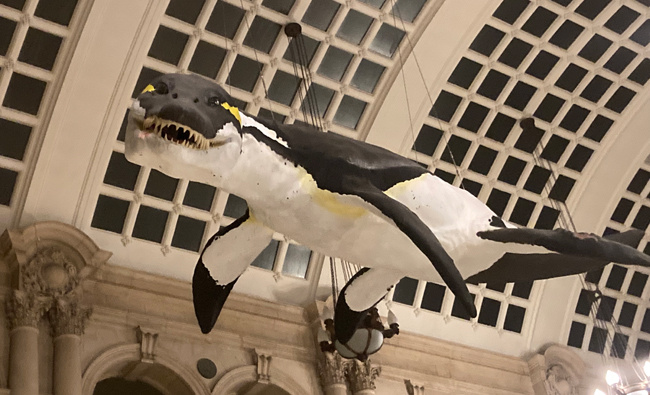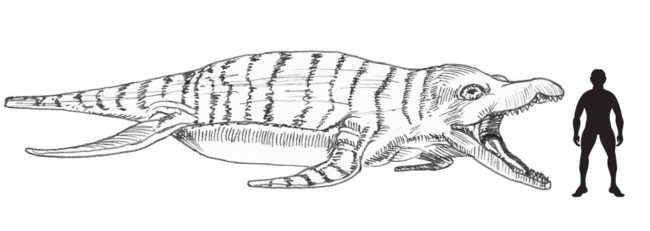Russian Scientists Unearth Rare Pliosaur Remains
New Jurassic Pliosaur Discovered in Russia
Russian palaeontologists working at a site near the Volga river have uncovered the remains of a huge marine reptile. The animal is believed to represent a new species of pliosaur (short-necked plesiosaur), surveys of the matrix within which the remains have been found coupled with early estimates based on the fossil bones indicate that this creature may have exceeded 15 metres (50 feet).
The fossilised remains of the marine lizard are being extracted from Jurassic sediments from a site near to the city of Ulyanovsk, approximately 900 kilometres east of Moscow.
Huge Pliosaur Remains
A number of important finds have already been recovered from this region, but this new discovery is perhaps the most impressive to date, with this pliosaur probably being the top predator roaming the seas in this area at this particular time in the Mesozoic.
A Scale Drawing of a Typical Pliosaur
Picture credit: Everything Dinosaur
Several different pliosaurs groups are known. These include the rhomaleosaurs, the pliosaurids and the polycotylids, however, the evolution of this important group of Mesozoic marine predators is poorly understood. Scientists debate whether all pliosaurs are descended from a single ancestor or did different types of pliosaur evolve from different long-necked plesiosaur ancestors?
A Reconstruction of a Pliosaur

The life-size replica of the pliosaur (P. carpenteri) suspended from the ceiling at the Bristol Museum and Art Gallery. Pliosaurus carpenteri was formally named and described in 203 (Benson et al). Picture credit: Everything Dinosaur.
Picture credit: Everything Dinosaur
Pliosaur Remains Found Worldwide
Pliosaur remains have been found all over the world – Australia, South America, Europe and Africa. Although, by the middle of the Cretaceous they were less common and by the Late Cretaceous they had largely disappeared being usurped by the mosasaurs as the top predators in the sea.
Everything Dinosaur stocks a range of pliosaur models and other marine reptiles. Take a look at the “Sea Monsters” section of their award-winning website: Sea Monsters and Marine Reptile Models.


